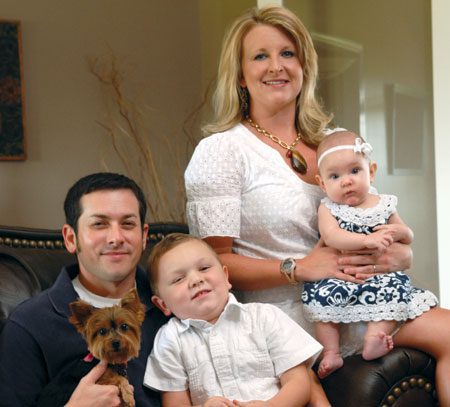by Renee Hunter
Cody Fulmer doesn’t consider himself a hero. But in his job with the Arkansas Regional Organ Recovery Agency (ARORA), he saves lives, which is what heroes do.

As an ARORA tissue coordinator, Fulmer is called to attend deaths and recover tissue that will provide hope and prolong lives. He is on-call one 24-hour day out of six, and in that time, he answers 12 calls on average. He is one of a team of three, each with a separate and crucial responsibility: The donor’s family, donor suitability and dealing with the tissue processors.
Fulmer’s decision to join a helping profession is a result of his being with his grandfather when he collapsed in 2000. “I didn’t have a clue what to do,” Fulmer said. The firefighter-EMTs who answered the 911 call impressed him, and he decided he wanted to join them. Sadly, his grandfather didn’t survive.
Fulmer soon became a Greenbrier volunteer firefighter and an EMT. In 2008, he was awarded the Red Cross Heroes Award for his response to an 18-wheeler-car collision. Fulmer crawled into a badly crushed car in order to stabilize the driver until the car’s roof could be cut off and the man removed.
“Looking back, it was incredibly dangerous, but I didn’t even think about it at the time,” Fulmer said.
Fulmer was a surgery scrub tech at Conway Regional Medical Center in 2004 when ARORA approached him to work on a per-case basis. He did.
Two years later, the Little Rock tissue manager suggested he apply for a vacant full-time position. He did.
ARORA’s unusual three-step interview process, beginning with prospective coworkers and ending with the executive director, is difficult, but worthwhile. “It’s a great way to do it because it brings you together as a family,” Fulmer said.
People who register as donors on their Arkansas driver’s license or state identification card are giving consent to donate their organs and tissue, and do not require their next of kin’s permission. However, it is still important that registered donors inform their families of their decision so that they are aware of their loved one’s wishes.
Potential donors must be free of serious chronic illnesses, such as cancer, which is a leading cause of patients being unable to donate.
Traumatic injuries that damage organs or tissue that could be recovered are another reason for rejection.
“Very few are suitable donors,” Fulmer said.
Donors fall into three categories: The standard donor is 14-50 years old, the non-standard is 50+, and the specialty donor is one who may be under 14 (from which only cardiac tissue is used) or one who has a specific tissue requested by a surgeon.
The organ-donor list, which is maintained by United Network of Organ Sharing (UNOS), contains more than 100,000 names.
The only downside to Fulmer’s job is that it takes him away from his family for longer than he would like. Fulmer’s wife, Sara, is an occupational therapist with Conway Human Development Center. The couple has two children, Levi, 5, and Dani, 5 months.
Still, there is tremendous satisfaction in helping others. “I like to think that God was the first transplant surgeon,” Fulmer said. “He used Adam’s rib to make Eve.”
Fulmer sometimes uses this example when talking to a donor’s family, as well as pointing out the lives their loved one’s donation can save.
“I give the family a chance to make something good out of something bad,” Fulmer said. “Hearing the good that comes out of my job helps me to sleep at night.”

